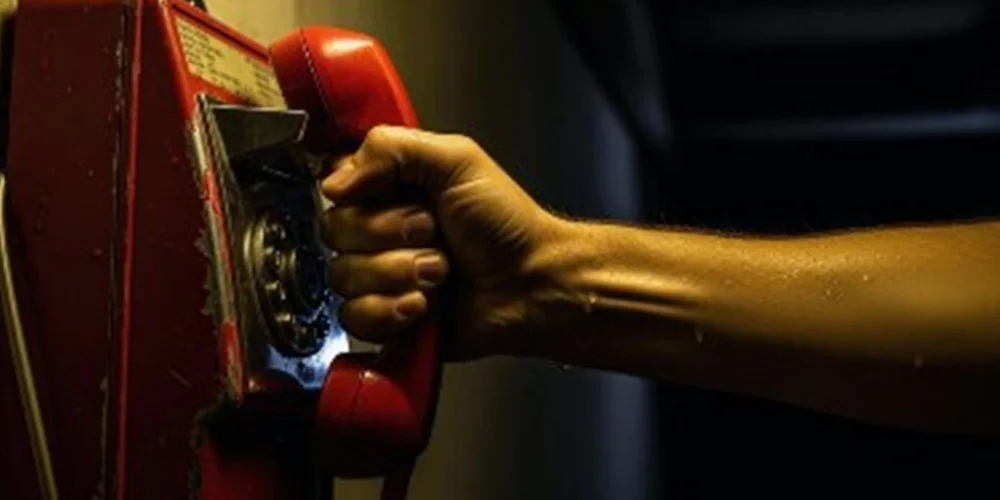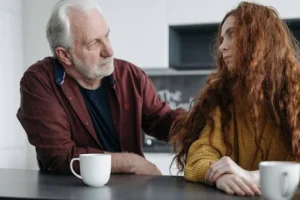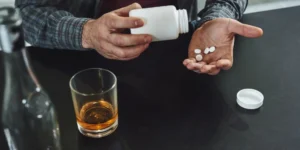Why Talking to Strangers Might Save Your Life

Addiction thrives in silence. It grows strongest in the shadows where nobody knows what’s really going on, the bathroom mirror, the late-night drive, the half-empty bottle on the counter. It tells you that nobody would understand, that your story is too ugly, too messy, too broken to share.
But then something happens, maybe in rehab, maybe in a group meeting, maybe in a conversation with someone who simply listens without flinching, and for the first time in years, you hear your pain spoken out loud by someone else. That’s when the illusion cracks. That’s when healing begins.
Talking to strangers might seem like the last thing a struggling addict wants to do. But for many, it becomes the one thing that keeps them alive.
Why Isolation Fuels Addiction
Addiction isolates by design. It teaches you to hide, to conceal how much you drink, how often you use, how desperate you’ve become. It whispers that if anyone saw the real you, they’d leave. And over time, that secrecy turns into a kind of prison.
Isolation isn’t just loneliness, it’s disconnection from reality. You stop being part of the world and start orbiting around your substance. Every lie to cover your use adds another brick to the wall separating you from the people who love you.
And here’s the cruel part, the more isolated you become, the more you use to fill the void. It’s a self-feeding loop. That’s why connection isn’t a luxury in recovery. It’s survival.
The Power of Being Seen
In the beginning, sharing your story feels like walking into traffic, vulnerable, terrifying, almost reckless. But the moment someone nods and says, “I’ve been there,” everything shifts. That small moment, being seen, being understood, has the power to break years of shame. Because shame can’t survive exposure. When you drag it into the light, it loses its grip.
In recovery meetings, therapy groups, and community circles, strangers become mirrors. They reflect back to you the truth that you’re not a monster, you’re a human being in pain. And that realisation can be life-changing.
Why Talking to Strangers Works
There’s a strange freedom in opening up to people who don’t know you. Family and friends often carry history, judgment, resentment, or fear. Strangers in recovery spaces, though, understand without the emotional baggage. They’ve walked through the same fire.
That’s why talking to strangers in recovery can sometimes feel safer than confiding in loved ones. You don’t have to perform or explain. You can simply be. These connections are built on mutual survival, not obligation. You’re both trying to make it through the same storm. And that shared truth creates a bond stronger than most lifelong friendships.
The Biology of Connection
Human connection isn’t just emotional, it’s biological. When we share openly, the brain releases oxytocin, a hormone that reduces stress and strengthens trust. This counteracts the isolation-driven chemicals of addiction, like cortisol and dopamine imbalance.
In other words, talking to someone who understands literally rewires your brain for safety and calm. It’s not just therapy, it’s neurochemical repair. That’s why recovery programs emphasise connection over isolation. When the brain begins associating relief with relationships instead of substances, real healing starts to take root.
Community as Medicine
In addiction recovery, community isn’t a buzzword, it’s medicine. Group therapy, 12-step meetings, and peer-support circles all exist because human beings heal in community, not in isolation. A therapist can help you unpack trauma. Medication can stabilise your mood. But it’s people, messy, imperfect, honest people, who show you how to live again.
Someone in that room has felt your exact shame, cried your same tears, and somehow made it through another day. That’s hope, not the motivational kind, but the gritty, real kind that says, “If they survived, maybe I can too.”
The Language of Honesty
Addiction is built on lies, to others, but mostly to yourself. “I can stop anytime.” “I’m not that bad.” “It’s just stress.” Over time, those lies become second nature. In recovery circles, those lies start to unravel. The language changes from denial to honesty. People introduce themselves by naming their truth, “Hi, I’m Sam, and I’m an addict.”
It’s not a confession, it’s an act of power. It’s saying, “I refuse to hide anymore.” That language of honesty spreads. Once you learn to speak it in recovery rooms, you begin to live it outside them, in your relationships, your work, your sense of self.
When Vulnerability Becomes Strength
We’re taught that vulnerability is weakness, that showing pain means losing control. But recovery turns that idea on its head. Vulnerability becomes your greatest strength. Every time you share your truth, you invite connection. And every time someone relates, your shame weakens.
That’s why people who’ve been through addiction often become incredible sources of support for others. They’ve lived through what most people fear, exposure. They know that honesty, though painful, is the only way out.
Why Talking Saves Lives
Many people who die from addiction or suicide never tell anyone how bad it’s gotten. They don’t reach out, not because they don’t want help, but because they don’t believe help exists. That’s why talking, even awkward, uncertain, clumsy talking, saves lives. It interrupts the story the addict tells themselves, “Nobody cares.”
The moment you speak, someone listens. The moment you’re heard, you matter again. And that small shift, from invisibility to belonging, is sometimes all it takes to step back from the edge.
The Shared Recovery Paradox
Shared recovery doesn’t mean you’ll never feel alone again. You will. There will be days when the room feels too bright, when you want to disappear, when everyone else’s progress makes you feel like a failure. But that’s the paradox, even when you feel alone, you’re still part of something. You’ve planted yourself in a network that can hold you when you can’t hold yourself.
You may relapse. You may disappear for a while. But if you’ve built real connections, someone will notice, and they’ll reach out. That’s what makes shared recovery powerful. It’s not perfection. It’s persistence.
Stories That Heal
When people share their recovery stories publicly, online, in meetings, or through writing, they do more than express themselves. They break collective silence. Hearing someone else say, “I thought I was the only one,” changes everything. It replaces stigma with solidarity. That’s how cultural healing begins, one story at a time.
Every person who speaks out becomes a lighthouse for someone else still lost at sea.
The South African Context
In South Africa, where addiction intersects with poverty, trauma, and stigma, shared recovery is both revolutionary and necessary.
Many communities lack access to therapy or treatment, but they still have access to one another. Informal support circles, from church groups to WhatsApp chats, are saving lives by creating spaces where honesty is possible. Healing in this context isn’t about fancy programs. It’s about human beings refusing to stay silent.
Relearning Connection
Recovery is less about removing substances and more about reintroducing connection. It’s learning to trust people again, to be known without performance, to speak without fear of rejection. For many, talking to strangers becomes the training ground for intimacy. You practice being real in those rooms so you can carry it into your life. That’s how healing spreads, not in grand gestures, but in small, honest conversations between people who’ve both known the same darkness.
Addiction thrives in silence. Recovery thrives in connection. Every time you speak honestly about your pain, you weaken the power it has over you. Talking to strangers won’t fix everything. But it might save your life, not because they have all the answers, but because they remind you that you’re not alone in the question.
That’s the quiet magic of shared recovery, strangers becoming mirrors, mirrors becoming friends, and friends becoming the reason you stay another day.






